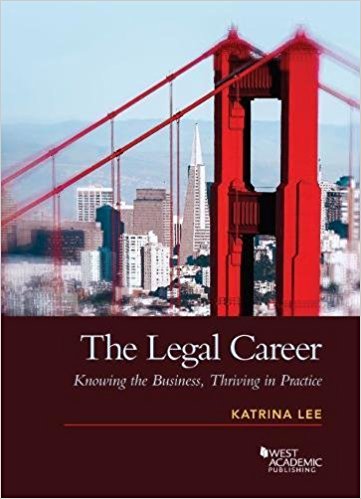Moot court student leaders and faculty advisors are now registering for 2018-2019 competitions. One factor in choosing a competition is the quality of volunteer judges at the competition. As anyone passingly familiar with moot court knows, most of the moot court judging is done not by actual judges but by attorneys volunteering to play the role of judges. Moot court is a massive annual undertaking in legal education, with approximately 75 competitions listed on LSU’s catalog of moot court opportunities nationwide. If each competition uses 20 volunteers (a conservative estimate) and if each attorney judges at only one competition, that’s 1500 attorney volunteers annually. And that figure does not include the many internal competitions at various law schools also utilizing attorney volunteers. It also does not include the many volunteers at mock trial competitions, ADR, and other litigation-skills competitions. This post is relevant to those as well—it’s relevant to any skills competition that uses attorney volunteers to play a role during the competition, score the competition, and give feedback to law students.
These attorneys are crucial to making moot court broadly available so students can demonstrate and use their advocacy skills in a (simulated) high-stakes environment. These attorneys also have tremendous influence over the quality of competitors’ experience. The volunteer attorney judges must ask questions, evaluate answers and transitions, and give scores that determine which teams progress to the next rounds. The volunteer attorney judges also are often given the opportunity to address the competitors and share some brief commentary and advice. Moot court is “moot,” but advocating for a client before strangers, accepting feedback with aplomb, and firing up to “go again” in another competition round on short notice does help prepare students for high-stakes experiences in practice.
On all of the volunteer attorney judges’ objectives—educationally valuable questions, fair scoring, and wise feedback—their performance can vary widely. When they ask judge-like questions, score fairly, and give useful, constructive commentary, moot court succeeds. But when they badger or dominate a round, give superficial, inconsistent, or unfair scores, or share unhelpful or unnecessarily damaging comments to competitors, moot court fails.
After hearing positive and negative stories along these lines shared by other faculty advisors, I invited contributions about moot court judging. The questions contributors could choose from included the following ideas:
- What are some of the best experiences you’ve had with attorney judges at moot court competitions?
- What can attorneys do to prepare for judging to make it an excellent educational experience for students and helps the attorneys share uniquely valuable advice and feedback with students?
- What are some of the worst experiences you’ve had with attorney judges at moot court competitions?
- How do you distinguish between critical feedback and scores that are poor but fair, and inappropriate feedback and unfair scores?
- What can competitions do to prepare their attorney judges and minimize bad experiences for students?
- Have you ever pulled your law school out of a competition because of inappropriate judging or other problems with a competition?
- How do you prepare students to handle any type of attorney feedback they may receive?
- Some attorneys argue that harsh words and even harassment are part of legal culture, so moot court can help students by preparing them for that too. What are your thoughts on that stance?
- When moot court is done right, what does it offer students and attorney judges who are willing to volunteer?
In response to the call, this compilation features three contributions: Patrick Long of Buffalo, Susie Salmon of Arizona, and Barbara Gotthelf of Rutgers. Thanks to each contributor.
 By Patrick Long
By Patrick Long
Legal Analysis, Writing and Research Program Coordinator and Lecturer, and Director of Moot Courts, University at Buffalo School of Law
Q: What makes a good—and a bad—volunteer moot court judge?
We tend not to hear about the good experiences with judging. Few people talk to us as directors when arguments go well, judges are engaged, and there’s enough coffee. So as directors, no news is really good news. As a result, my most vivid experiences are all bad ones. I know: we need to be thankful for our volunteer judges. CLE is not much payment for the work a good judge does, and we simply could not do moot courts without their help. Nonetheless, there can be some real stinkers. The bad judges fall into two broad categories: lousy humans and lousy teachers.
In the lousy human camp are these judges:
- The judge who told a student with mild cerebral palsy and a slight stutter that “because of your speech impediment, litigation is probably not a great fit for you.”
- The judge who complimented an Asian-American student on how well she knew English.
- The judge who reads the bench brief for the first time when he arrives at the competition.
- Any judge who says “I know the dean …”
In the lousy teacher camp are those lawyers who have forgotten what it means to be a student, or to be responsible to educate students. They expect 2L’s and 3L’s to match their own (self-inflated) knowledge of law and procedure, and they expect problems that present near-actual legal issues and facts. These judges are incapable of inspiring students about the profession, or teaching them what they need to know. They also refuse to understand that those who write the problems need to find two issues, on interesting legal topics, that are not factually on point exactly with cases pending (because students will just download the briefs from Westlaw):
- The judge who disagreed with a student’s version of the facts because she had not read the record or the bench brief. Then castigated the student for the ridiculous problem “that could never happen in real life” after the student showed her the fact pattern. At lunch, she spent 20 minutes complaining to me about the idiot who wrote the problem, not aware that it was me. That evening, that’s team coach told me in all the years he had been coaching moot courts, he had never seen so lousy a judge, and he was convinced she intentionally tanked his team’s score because of her own failure to read the record.
- The judge who tells war stories about his own fabled career for 25 minutes in the feedback portion, ruining the entire day’s schedule, and ignoring the students entirely.
There are those rare angels, however, who really make me proud to be a lawyer:
- The judge who actually reads all the cases cited in the bench brief.
- The judge who tells you she enjoyed the problem.
- The judge who says for an extra round because you are thin on volunteers.
- The (actual sitting) judge who told the competitor who crashed and burned how poorly she did in her first argument in court, and how she thought about quitting the DA’s office.
- Your former student who comes back to judge, because she knows how much she learned from the experience, and because she knows it’s part of her duty as an attorney to give back to the profession.
These angels make it worthwhile, but they seem more and more rare these days.
 By Susie Salmon
By Susie Salmon
Director of Legal Writing and Clinical Professor of Law, The University of Arizona James E. Rogers College of Law
Q: Some attorneys argue that harsh words and even harassment are part of legal culture, so moot court can help students by preparing them for that too. What are your thoughts on that stance?
I think that attitude is at best misguided and at worst disingenuous. How do we create a culture of civility and respect in the legal profession if members of the profession model this type of incivility and disrespect (and frequently seem to be having so much fun doing it) at moot-court competitions? And, honestly, I’d give that justification more credence if the attorneys who misbehaved while in role then told the students in feedback that their misbehavior—while not unheard of in the profession—should nonetheless be unacceptable. I strongly favor moot-court judges who hold advocates to account, force advocates to use law and fact to support their arguments, chastise advocates for making false statements of misrepresentations, and prevent advocates from evading difficult questions.
But I do not support moot-court judges modeling unprofessional, uncivil, or disrespectful behavior just because some real-world judges and attorneys will behave poorly.
Should we sexually harass students during moot court just because Kozinski existed? Should we make bigoted statements because students might be subjected to such behavior in the real world? No. Of course not.
We prepare students for those unpleasant realities—without perpetuating them—by discussing real-world examples and how to handle them, not by modeling that poor behavior ourselves.
Q: What can attorneys do to prepare for judging to make it an excellent educational experience for students and help the attorneys share uniquely valuable advice and feedback with students?
Nothing devalues the moot-court experience for the students like unprepared or underprepared attorney judges. Unprepared judges cannot accurately assess the substance of a student’s argument and thus will reward superficial polish and bluster over truly proficient persuasion. Read the bench memo thoroughly and make sure you understand the legal principles and crucial facts. If you have time, read some of the key cases. Discuss the law and facts with your fellow judges, if possible, and ask clarifying questions as necessary. If the problem presents an area of law with which you are entirely unfamiliar, consider browsing a treatise or two. Try as much as possible to prepare as you would if you actually had to decide the issue.
Q: What can competitions do to prepare their attorney judges and minimize bad experiences for students?
Competitions can help by making it as easy as possible for judges to be well prepared for argument. Look: I know it’s often hard to recruit judges, and there is only so much a competition can do to control what busy volunteers do to prepare.
But competitions can make it easier, more fun, and more convenient for judges to be prepared. Many competitions—including our internal competitions at Arizona Law—provide not only thorough, well-organized written bench memos and judging guidelines but also instructional videos that include an overview of the key legal and factual issues and some tips on judging and scoring.
With the proliferation of online education, most educational institutions have access to the technology that will help you make the material accessible to judges in a mode and at a time that’s most convenient for them. Explore whether the jurisdiction allows you to offer CLE credit to attorneys who review the prep materials (maybe even create a quiz to make sure people have digested the key information); attorneys always need CLE credit!
When you create the problem, resist making the legal issues so complex and convoluted that lawyers of ordinary intelligence will struggle to get up to speed; the students will work hard to understand those issues and develop sophisticated arguments, and few things are quite so demoralizing to a moot-court advocate as having an ill-prepared judge favor your opponent’s slick but flawed retort over your nuanced, thoughtful, accurate argument.
And I love it when competitions give coaches comment cards to make it easier to share feedback on the competition, including judging issues. I provide many more suggestions in my article, Reconstructing the Voice of Authority, which came out in Akron Law Review in fall of 2018, but those would be my top tips.
 By Barbara Gotthelf
By Barbara Gotthelf
Professor of Professional Practice of Law and Director of Externship Programs, Rutgers Law
Q: How do you prepare students for comments from moot court judges that focus on superficial issues?
I’ve stopped calling our program at Rutgers “Hunter Moot Court.” Instead, I call it “Hunter Appellate Advocacy” because I want it to be seen—by students, faculty, and guest judges — as an educationally focused simulation course rather than a public speaking contest.
Hunter Moot Court, named for the late Third Circuit Judge James Hunter III, is a year-long, five credit course in which students brief the case in the fall and argue it in the spring—more or less the way it happens in real life, which is the point. The course is designed to approximate actual practice as much as possible. That goal—making it as real as possible—governs how we approach the judging of the arguments.
This is what I tell my students. From their perspective as advocates, the purpose of oral argument is to persuade the court by narrowing the issues; answering the court’s questions, rebutting arguments; and explaining in simple, concrete terms, how and why they should win. From the court’s perspective, oral argument is a chance to clarify, to probe, to challenge, and to resolve any issues that stand in the way of reaching a decision.
I also tell my students this: None of this has much to do with their oratory prowess.
As Justice White once commented, judges view lawyers as resources, not as orators. As long as the lawyer can be heard and understood, I honestly don’t believe the court cares one bit whether the lawyer appears nervous or pauses to gather her thoughts.
Judges do care, and care a lot, if the lawyer is prepared; if she is respectful; and, most of all, if she answers the court’s questions, fully and directly. I tell my guest judges this as well, and I ask them to evaluate the arguments from the perspective of an actual judge hearing a real argument, focusing on what truly matters to someone who must render a decision in a real case involving real litigants.
And then I warn my students that no matter how well we try to prepare the lawyers who will judge their arguments, some of them are still likely to give feedback on things like inflection, use of verbal fillers, dramatic flair, and rhetorical wizardry. Worse yet, I tell them that at least one student—probably a woman—will be told to smile more, and another—probably a man—will be told to “come out swinging” on rebuttal. This is the cyclical curse of moot court. As law students, these are the criteria many of us were judged by, especially those of us who went to law school before much thought was given to what “practice ready” means.
The lawyer/judges don’t always get this. But the students do. By the time we get to the argument phase in March, they have lived and breathed the case for six months, and frankly they don’t want to be told to smile more. Because we’ve discussed this, they are able to filter out the superficial comments and focus on the substantive feedback. This is one of many reasons I always invite Hunter alums to judge the arguments.
__
Thanks again to the guest contributors above. For more information on moot court judging, see Barbara Kritchevsky’s law-review article Judging: The Missing Piece of the Moot Court Puzzle, reprinted in the Legal Writing Institute’s Monograph Series, Volume Six on Moot Court and Oral Advocacy. (Full disclosure: I was editor-in-chief of that volume.)
And good luck to every student competing in moot court and other skills competitions this year. You are making yourselves into stronger and more skillful future lawyers by all your work!
 By Patrick Long
By Patrick Long  By Susie Salmon
By Susie Salmon By Barbara Gotthelf
By Barbara Gotthelf



 Katrina Lee’s new book on the business of law,
Katrina Lee’s new book on the business of law,